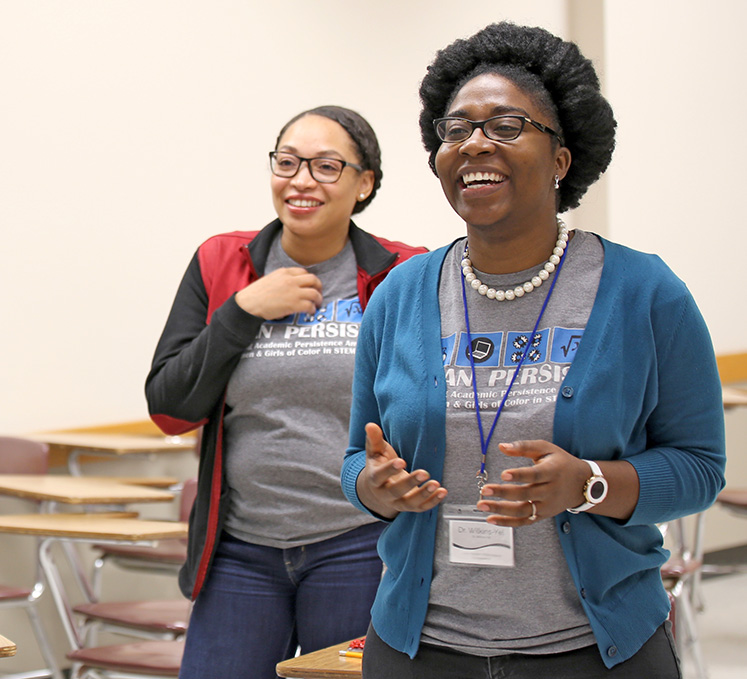I CAN PERSIST encourages women of color to explore STEM
The initiative involves 50 high school, undergraduate and graduate students in a year-long program
It was during a debriefing session after a STEM professional spoke to students that Kerrie Wilkins-Yel said an undergraduate student told her she’d “never seen a black female scientist before.”
Wilkins-Yel, Assistant Professor in the Department of Counseling and Educational Psychology, said the I CAN PERSIST STEM initiative was developed in response to such an observation. The initiative involves 50 high school, undergraduate and graduate students in a year-long program that includes talks from STEM professionals, outreach activities that engage high school students in the real-world applicability of STEM skills, and job shadowing around Bloomington.
As STEM careers continue to be important, so too is the need to support the persistence of IU STEM students who identify as women of color.
“Support to mitigate the feelings of isolation in spaces where they are one of, if not the only, woman of color; support to bolster feelings of belonging and to stymie feelings of needing to continually prove their legitimacy in their programs; and support to combat the gendered and racialized microaggressions that are prevalent,” Wilkins-Yel noted. “STEM students who identify as women of color are capable, competent, and just as qualified to succeed as anyone in their classes, labs, or fields. However, they face a myriad of environmental factors that make it three times as hard to accomplish their goals.”
In 2012, minority women made up only small percentages of graduates receiving degrees in STEM fields*:
- 3.1% of bachelor’s degrees in engineering
- 6.5% of bachelor’s degrees in physical sciences
- 5.4% of bachelor’s degrees in mathematics and statistics
- 4.8% of bachelor’s degrees in computer sciences
- 9.7% of bachelor’s degrees in biological sciences
- 14.2% of bachelor’s degrees in social sciences were awarded to minority women
Additionally, only 8.2% of master’s degrees in science and engineering, and 4.1% of doctorate degrees in science and engineering were awarded to minority women (according to NSF, Women, Minorities, and People with Disabilities in Science and Engineering, 2015).
Wilkins-Yel said one of the benefits of the program is how it leverages the collective power of minority women across all educational levels and promotes students’ intentions to persist in STEM careers.
“It is a moral imperative that we facilitate the success of all students, regardless of their visible and invisible identities, who are interested in STEM, smart, skilled, and capable,” she said.
“I’d love for a time when a program like the ICP initiative will no longer be needed. A time when the climates of STEM departments are conducive to the success of students, regardless of their race, gender, sexual orientation, or nationality. We are making progress and we still have quite aways to go.”
*NSF, Women, Minorities, and People with Disabilities in Science and Engineering, 2015
 Students in the I CAN PERSIST program engage in an activity at the School of Education
Students in the I CAN PERSIST program engage in an activity at the School of Education